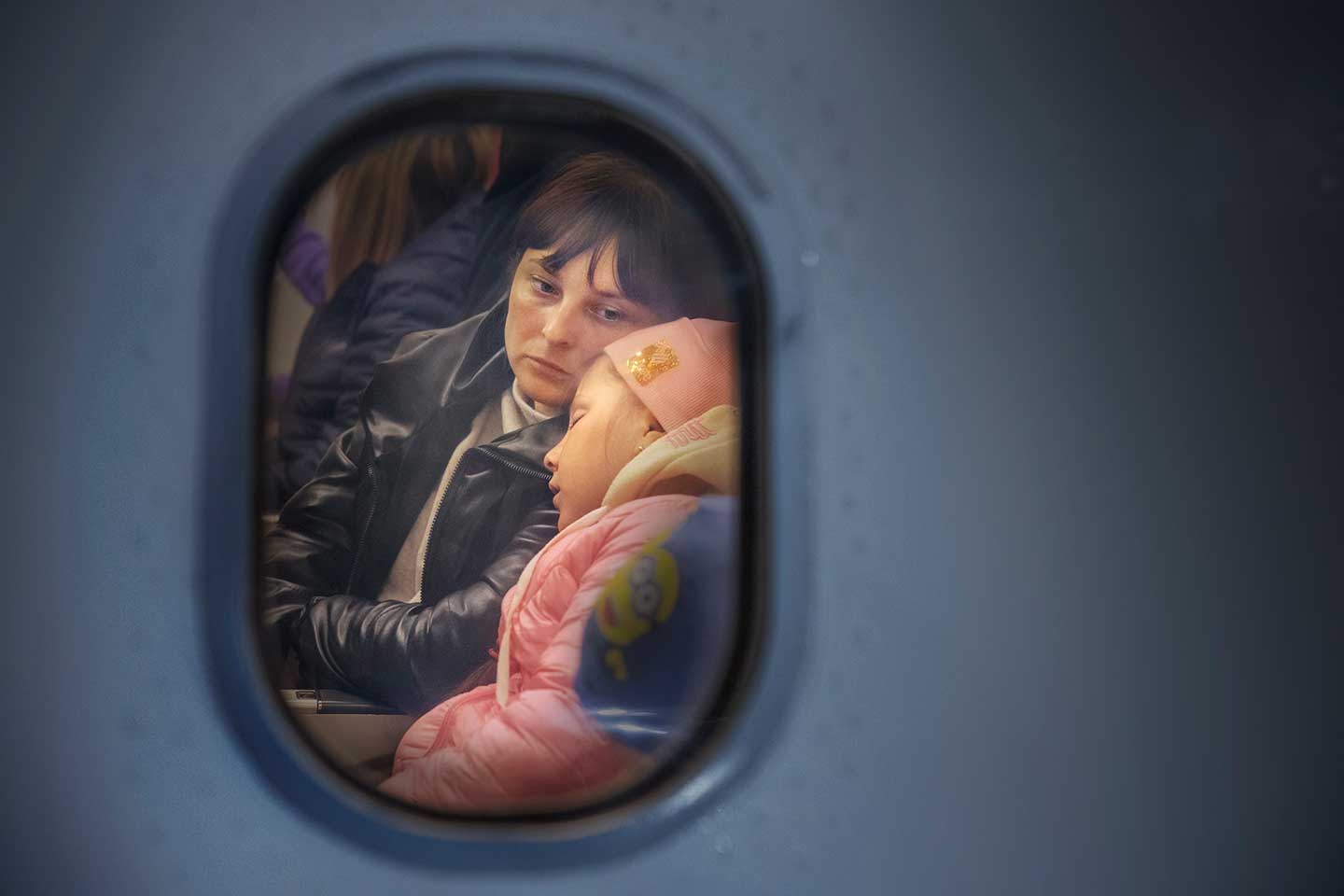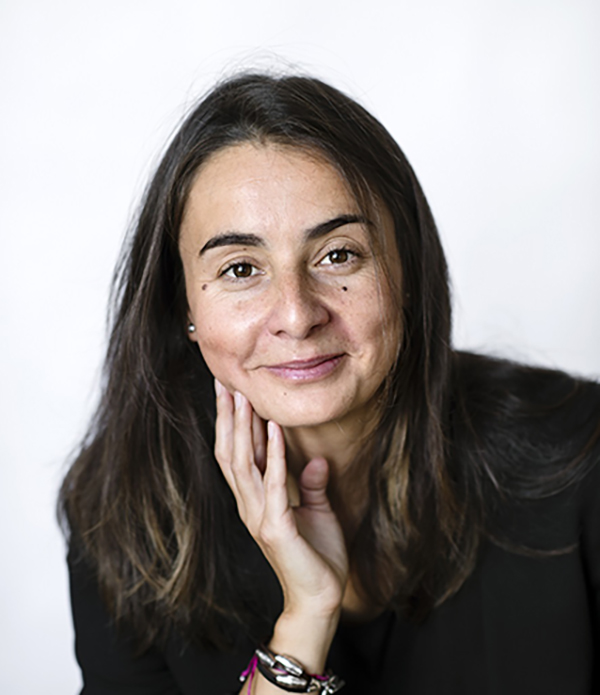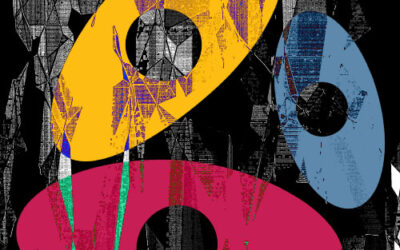Associated Projects
How Ukrainian refugee mothers are shaped as deserving in a context of solidarity
Thisproject will examine and analyse the political, socio-legal and bureaucratic attitudes towards Ukrainian refugee families in the context of the current Russian invasion and refugee crisis through the lens of the Ukrainian refugee mother. In stark contrast to previous and on-going conflicts, this war has been met with unprecedented welcoming and hospitality of Ukrainians by European civil society, politicians and government representatives alike. Why are European borders still closed to many ‘other’ refugees who are fleeing conflict yet this category of refugees is warmly welcomed? There are multiple actors that have stepped in to respond to the needs of these ‘deserving refugees’ showing unprecedented forms of solidarity. Beyond established international organisations and NGOs, local organisations and civil society groups have been created ad hoc. I aim to examine how cultural and geographic circumstances are used to construct discrete classes of refugees, what it means to be a ‘deserving’ refugee and gendered notions of deservingness. I will explore how the figure of the ‘deserving refugee mother’ is configured by ‘experts’, that is civil society organisations, advocates, policy-makers and the media. I aim to explore what makes these refugee mothers particular and how different actors who mediate to provide support to ‘the deserving refugee mother’ construct, negotiate or challenge this category.
I will also compare how this ‘deserving’ category stands in contrast to other groups of refugee mothers who are met with closed borders and human rights violations. In order to have a more nuanced understanding, I will undertake a comparative analysis of the situation in both the UK and Denmark. These two distinct examples offer a lens through which to examine how, despite having different welfare regimes and historical refugee backgrounds, these two countries converge in their welcoming attitudes of solidarity towards Ukrainian refugees yet have punitive policies towards ‘other’ refugees. I will examine how the different responses and schemes launched in the different countries enable refugee mothers and their families to potentially have immediate access to education, housing and labour opportunities.
Finally, this study will have a focus on family reunion policies. Since it is expected that with the current destruction, the reconstruction of Ukraine will take years, I will examine the family reunion policies put in place for Ukrainians when the war is over and separated families need to be reunited in Europe. I will also compare how this ‘deserving’ category stands in contrast to other groups of refugee mothers who are met with closed borders and human rights violations.

Image of Ukrainian mother and her child traveling from Krakow to Barcelona on a charter flight organised by a Spanish NGO.
Photo ©Ana Palacios
I aim to address the following key research questions
- How are attitudes from ‘experts’ and policy responses from governments used to construct the category of ‘the deserving Ukrainian mother’ by advocates and local governments representatives?
- What discourses are used by politicians, civil society and the media to construct, shape, challenge and negotiate the category of ‘the deserving Ukrainian mother’ and how do these differ from discourses of other groups of refugee women/mothers?
- How do family reunion policies created for the ‘deserving Ukrainian mother’ enable the right to a family life for Ukrainian families, and how do these impact on integration processes for these families?
Research design
Methodologically, firstly I will use critical discourse analysis of media, policy and legal documents published in the UK and Denmark to explore how the deservingness of refugee mothers is constructed, shaped or contested. This will require on-going monitoring and analysis of different media outlets and social media platforms, as well as a thorough literature review of policy and legal documents. Secondly, I will conduct semi-structured interviews with the ‘experts’ working with/for Ukrainian refugees. These will include
(i) policymakers at national and local level (e.g., the Council),
(ii) civil society organization representatives and NGO/CSO workers and volunteers who have first-hand experience providing support to Ukrainian refugee mothers and families
(iii) service providers including job centre workers and English language teachers who support Ukrainian mothers in their integration processes.
Andrea Verdasco
Iam a Postdoctoral Fellow at the School of Culture and Society at Aarhus University. My Postdoc is funded by the Independent Research Fund Denmark as part of their internationalisation grants. I am based at the Thomas Coram Research Unit, Social Research Institute at UCL IOE which I joined in March 2022 as a visiting Postdoc. I hold a PhD in anthropology from the University of Copenhagen. In my dissertation Coming of Age in Asylum I investigated how young refugees who arrived during the 2015 refugee crisis in Denmark as unaccompanied asylum-seeking minors constructed a sense of belonging through social relations despite the uncertainty and temporality of their situations. My thesis is an ethnographic account of the lived experiences of young refugees on the margins of the category of ‘unaccompanied minor’. Following my PhD, I was a Research Associate at the Institute for Public Policy and Governance, University of Technology Sydney, in Australia where I was also teaching Development Studies at the University of New South Wales. My research interests lie at the interstices of motherhood, childhood, families and intergenerational families in the context of refugeehood. I am interested in understanding refugee children and mothers’ lived experiences in their everyday encounters with welfare states and other actors who support them in the integration processes. I want to understand how family relations and motherhood are transformed when refugee families are separated and how they construct new forms of kin and navigate complex welfare processes. From a methodological perspective, my work is grounded in ethnographic accounts through participatory approaches. I have a multi-disciplinary background having studied translation and interpretation studies, development studies and anthropology. Prior to joining academia, I worked as a practitioner for NGOs as well as with IOM Tanzania, UNICEF Mozambique and the Office of Research of UNICEF.
My recent publications include Cooking ‘pocket money’: how young unaccompanied refugees create a sense of community and familiarity at a Danish asylum centre and Refugee support and inclusion policies in the context of the Ukraine conflict.
Blogs
Public perceptions and solidarities towards Ukrainian refugees
The 24th of February 2023 marked the anniversary of Russia’s invasion of Ukraine. Across the UK, multiple commemorations were held at national and local level including marches, vigils, services, concerts and minutes of silence. Cambridge, where I live, like many...


